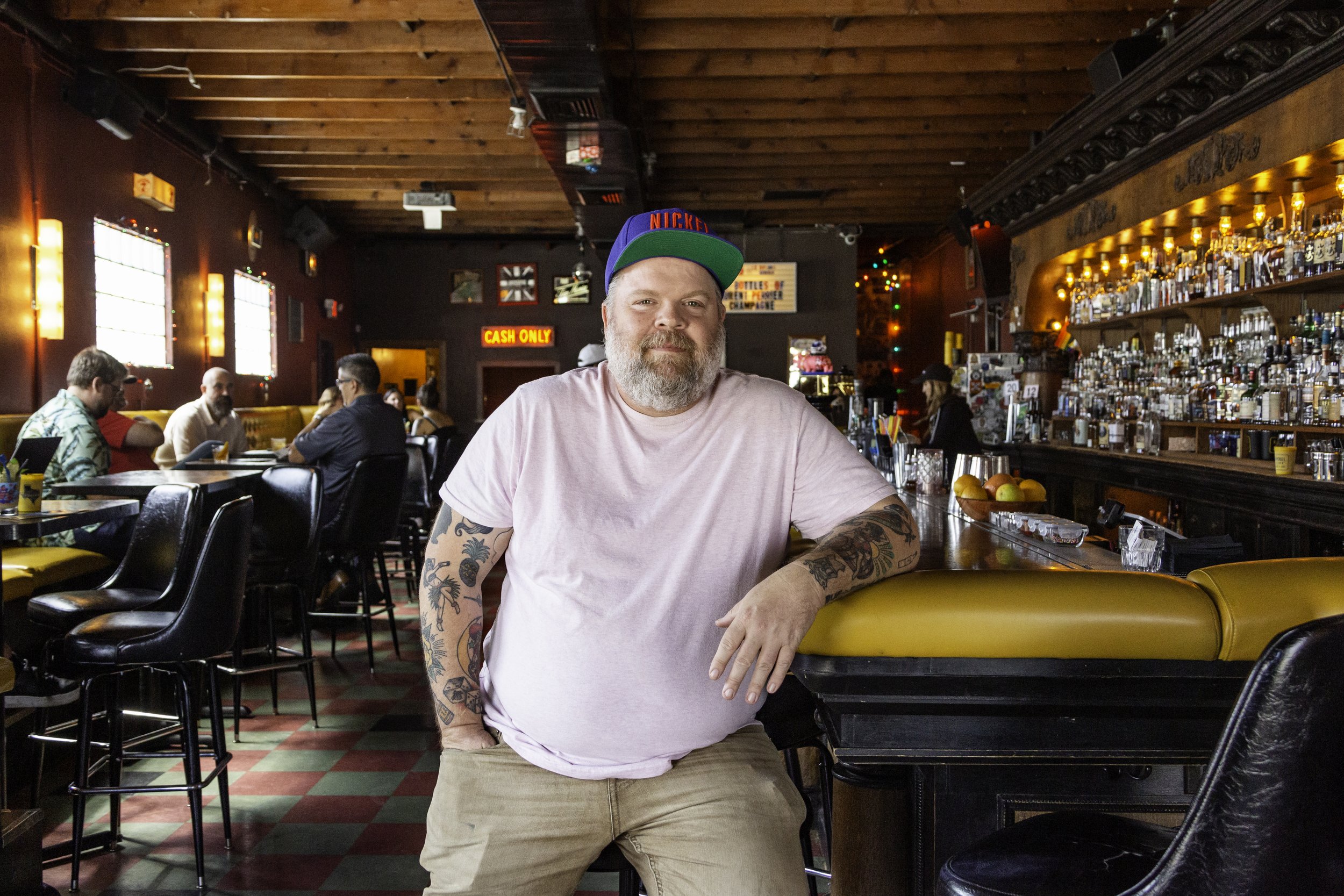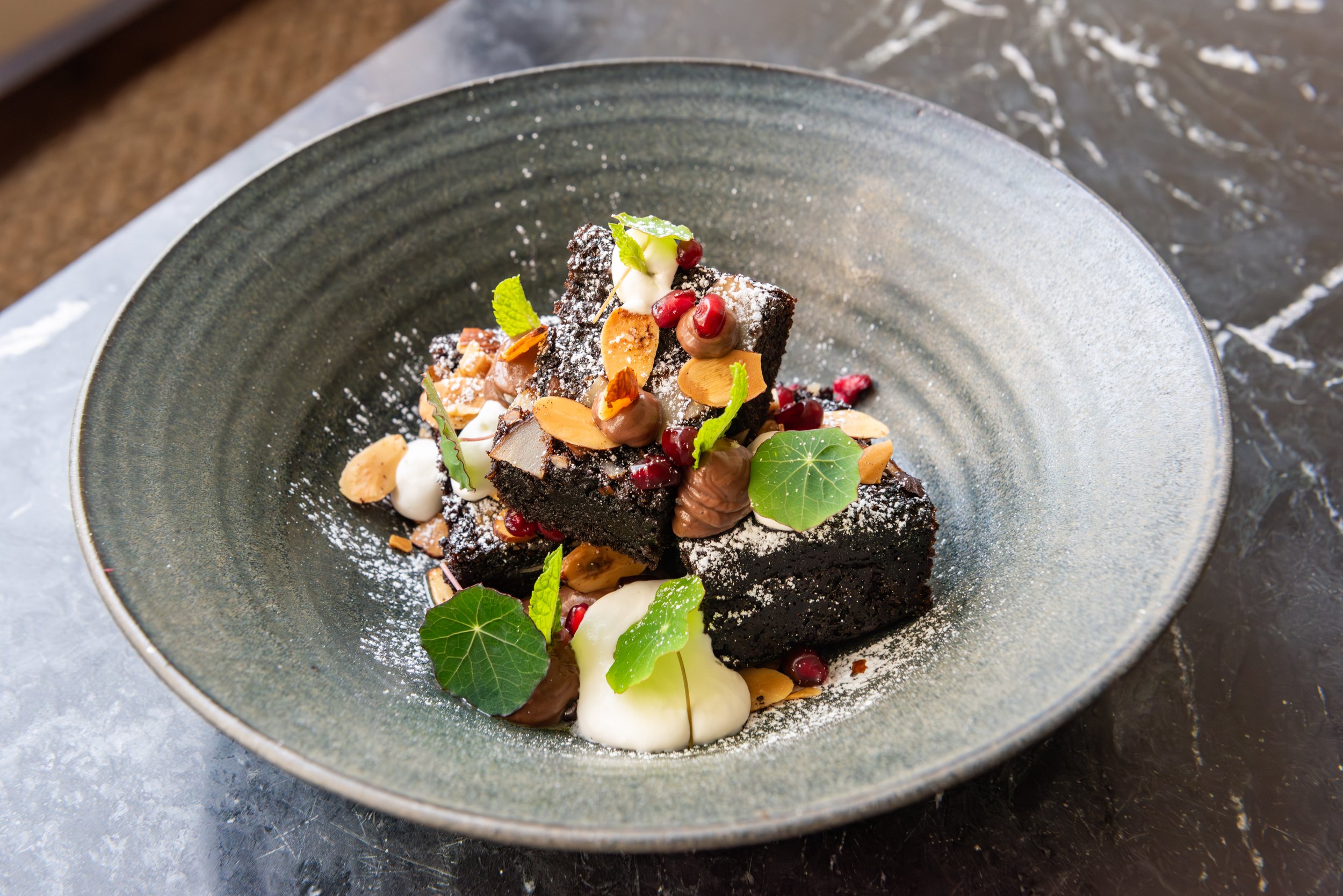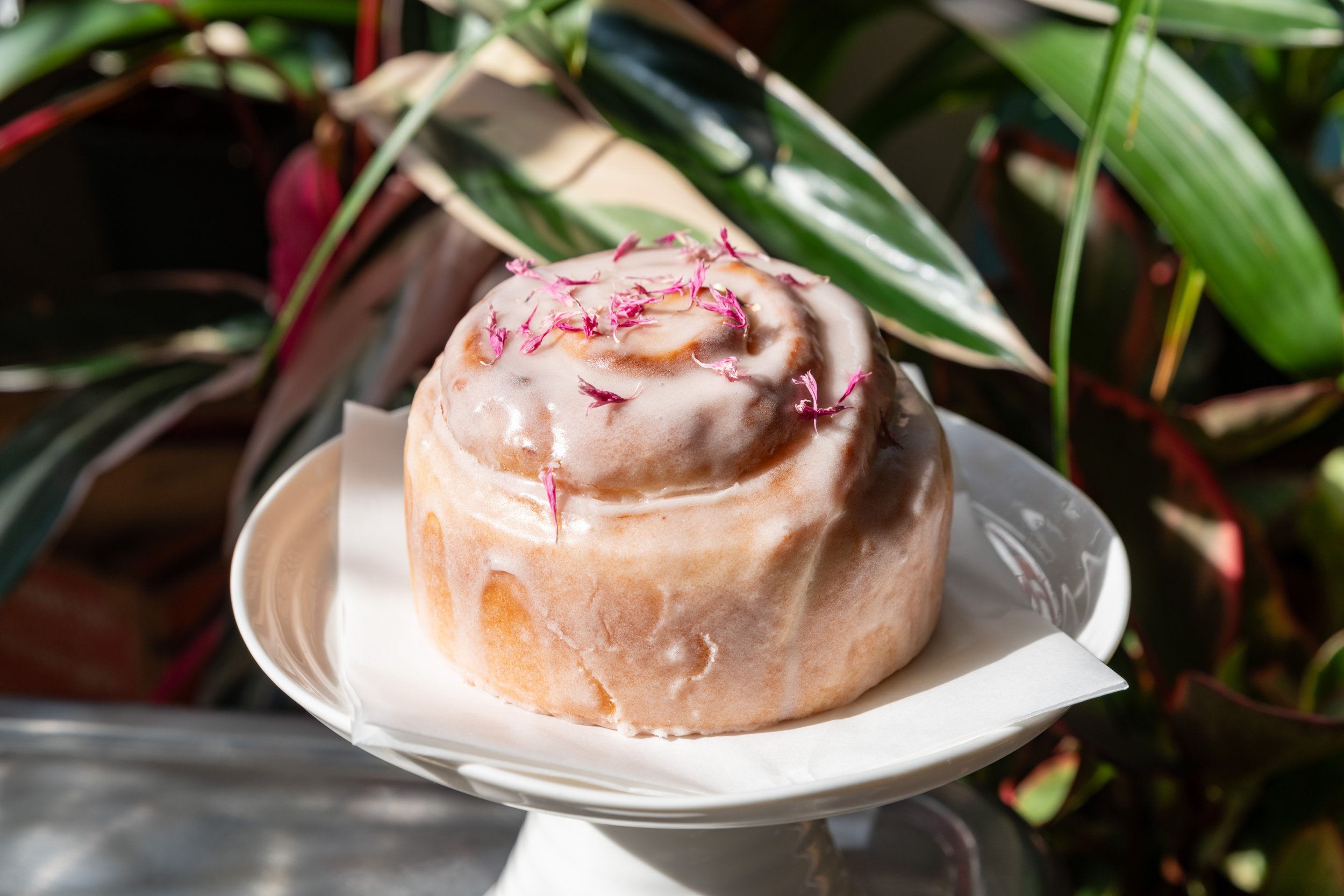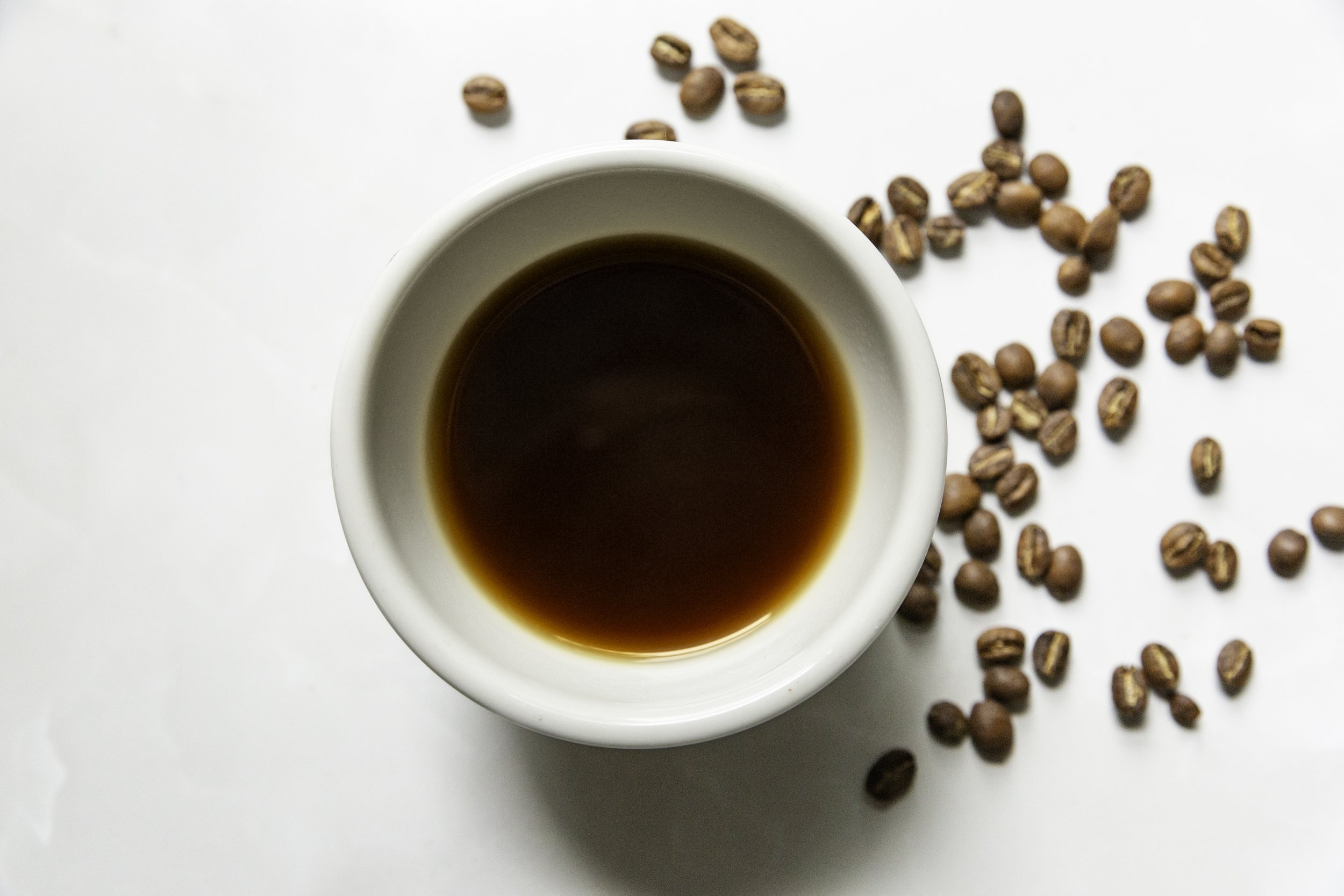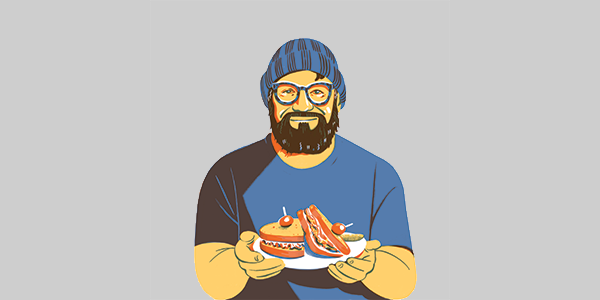Build-a-Bar: An Interview with Travis Tober
Restaurateur Travis Tober of Nickel City, Old Pal, and Uncle Nicky’s discusses the ins and outs of opening bars, and how he developed distinct concepts across Texas.
photos: raeann serra
Since opening his first concept, Nickel City, in 2017, bartender and business owner Travis Tober has kept his foot on the gas. Pulling inspiration from his childhood in Buffalo, New York and his time bartending around the country, Tober has opened seven distinct concepts across Texas. From Old Pal, where you can get your fill of fried chicken and honky-tonk, to Uncle Nicky’s, a classic Italian restaurant, to his forthcoming venture Murray’s Tavern, a cozy, more refined spot, Tober has found the balance between approachability, longevity, and quality. StarChefs' Chloe Rifat chatted with Tober to learn more about the ways in which he has built his businesses to last.
Building a Concept:
Living in the time we do, you need a good cocktail and you need a good backbar. In 2017, there were not a lot of neighborhood bars that did house-made syrups and thoughtful cocktails. There was nothing filling that space in between. We were pretty early in that trend. For Nickel City, I wanted to open a Rust Belt chic bar. The no fuss no frills bar that did weddings, funerals, and everything in between. The kind of bar that was open for lunch and closed at 4 AM. At Uncle Nicky’s, our focus is spritzes, negronis, and espresso martinis. Down ‘n Out in Fort Worth is a traditional dive bar, where we get in well-known local DJs twice a month. We concentrate on dive classics like vodka crans, but with a cranberry cordial and champagne, and oolong Long Island iced teas.
I hate the term "dive bars." We’re a neighborhood bar. It has to do with selection. You’re not gonna go to a dive bar and order a Sazerac. Dive bars usually don't have food. It's more grungy and dirty. But we try to have a solid backbar selection with a couple hidden gems. We have whiskeys for 200 dollars an ounce, but you can still get a beer and shot for seven dollars.
You have to pay attention to the trends, and pricing is a big one. No matter what place we're opening, if someone wants to come in, they should be able to get a beer or a pour of tequila and a meal for 20 dollars. I want it to be accessible. If you're only serving 18-dollar cocktails, you're going to get the same people over and over again. That doesn't make for an interesting bar, at least for me. I want dishwashers hanging out next to business owners. I want stockbrokers next to punk rockers.
Building out a Location:
We’ve been a part of a lot of up-and-coming neighborhoods. Nickel City is in East Austin, in the Rosedale neighborhood, and when we were opening in Fort Worth, we asked where the bartenders lived and brought [Nickel City] there. In 2020, we opened Old Pal in Lockhart. It’s a small city. We had seen so many things shut down, and I felt that live music venues were closing left and right in Austin, so we wanted a new spot for people to go to. We have live music Thursday through Sunday and pick [bands] that fit the brand. It’s a little bit of luck, but it’s going around cities and asking around. We like older buildings with character. I really don't want to do a new build—it doesn't match our vibe. It helps having a shitty building.
Building a Business:
On our back end, we have a lot of systems set up that are reminiscent of a corporate structure. There are a lot of neighborhood bars that don’t even have employee manuals or a procedure for requesting time off. We set goals for everything and everyone. We have recipe manuals printed and online, making sure they're easily available. We have an operations manager. We have a team of bookkeepers, and a branding team that designs our menus. We want to make sure our people make good money and feel comfortable talking to each other. Communication and comfort are important.
Pineapple Mai-Tai: Plantation Pineapple Rum, Rhum JM Gold, Dry Curaçao, Orgeat, Lime
El Fuego de Campo: Cacao Nib-Infused Mezcal, Mango, Birch Tincture, Cinnamon, Amontillado Sherry, Bittercube Chipotle Bitters, Flamed Marshmallow
Building a Culture:
For our guests, it boils down to service and our staff. We talk [to our staff] about service and making guests feel special more than the numbers and the cost. Nothing makes me feel better than having someone feel special—it makes me feel special. We try to find the people who can do that. We don't hire the same staff. We hire a cast of characters, like Cheers. I always say if you hire the best of the best, it sounds like a boring-ass bar. You can find an 8-dollar burger anywhere, but people will come back to a place that makes you feel over-the-top special. That’s the silent killer; the people that don’t complain about the service and are like, I'm never coming back.
Building Longevity Within Your Staff:
We talk numbers a lot. We want the staff to know what our sales are, what we are selling, if there are cool brands we want to push. We have staff contests and outings. Our employee of the year [is voted on by] an internal poll. Everyone’s included, and it's based on who you love working with and scanning through Google reviews. Every year we take the general manager and the employee of the year to New York City to go see what I consider to be perfect bars and perfect service.
Everyone starts as a barback, and it’s really cool to see people grow. I'm proud of the fact that people who leave my businesses aren’t leaving to go work at another bar, they are leaving to go work with liquor brands or they are leaving to be a general manager or a beverage manager. We've had barbacks leave and open bars. Our training system is really good. I often have the conversation with our staff like, “hey, we don't expect you to be here forever, but we want to build you up.” We’re constantly doing pop-ups around the country and bringing our up-and-coming bartenders. They start to see that bartending can be a career, not just a job. If you’re working with us and you get that spark in your eyes, we want to help get you there. If you want to open a bar, I will help you open a bar. I will give you all the information. I want you to succeed. The world needs more bars that are opened by actual bartenders, not just corporations.

